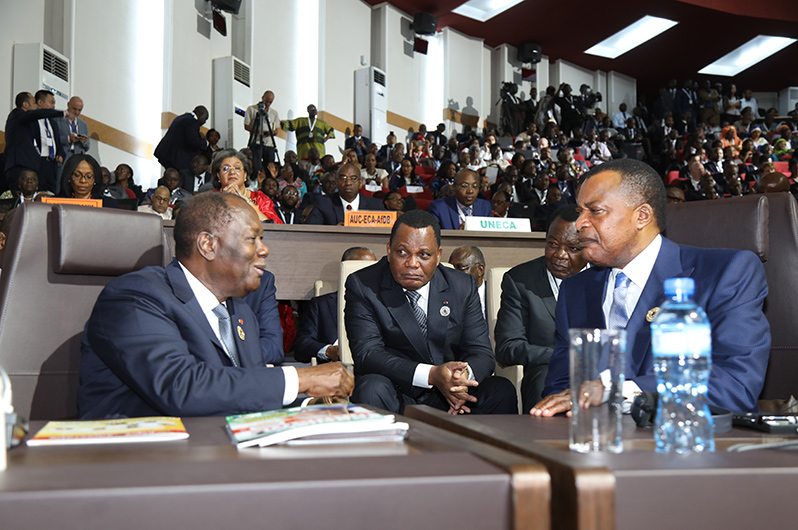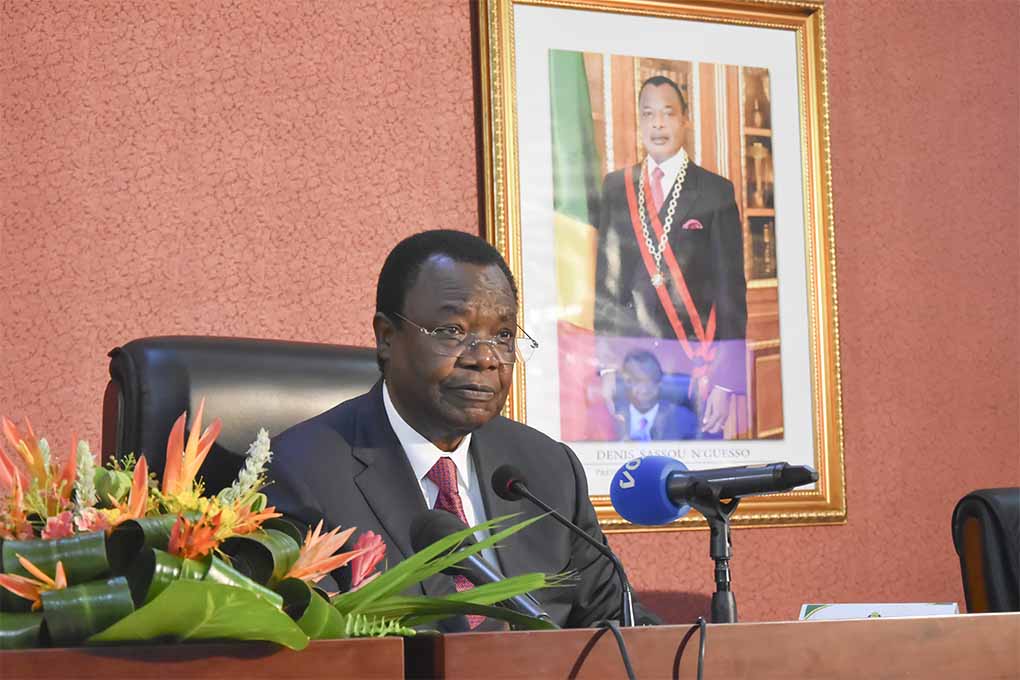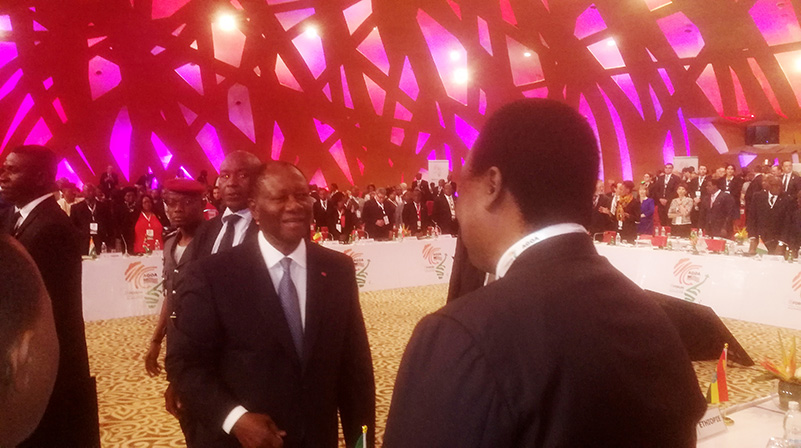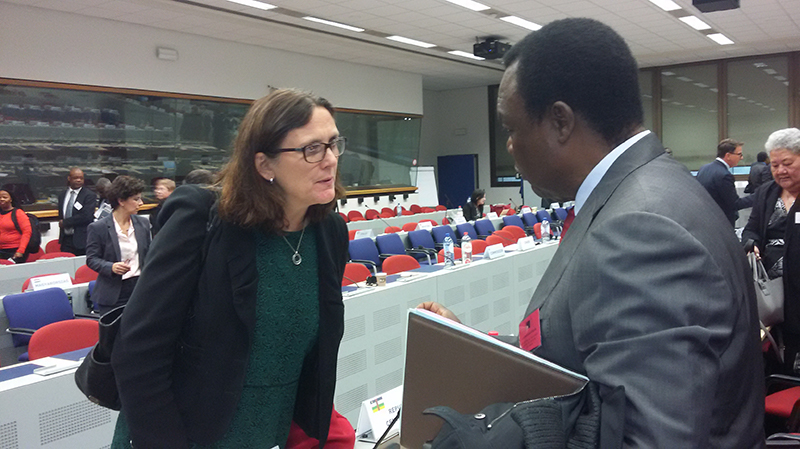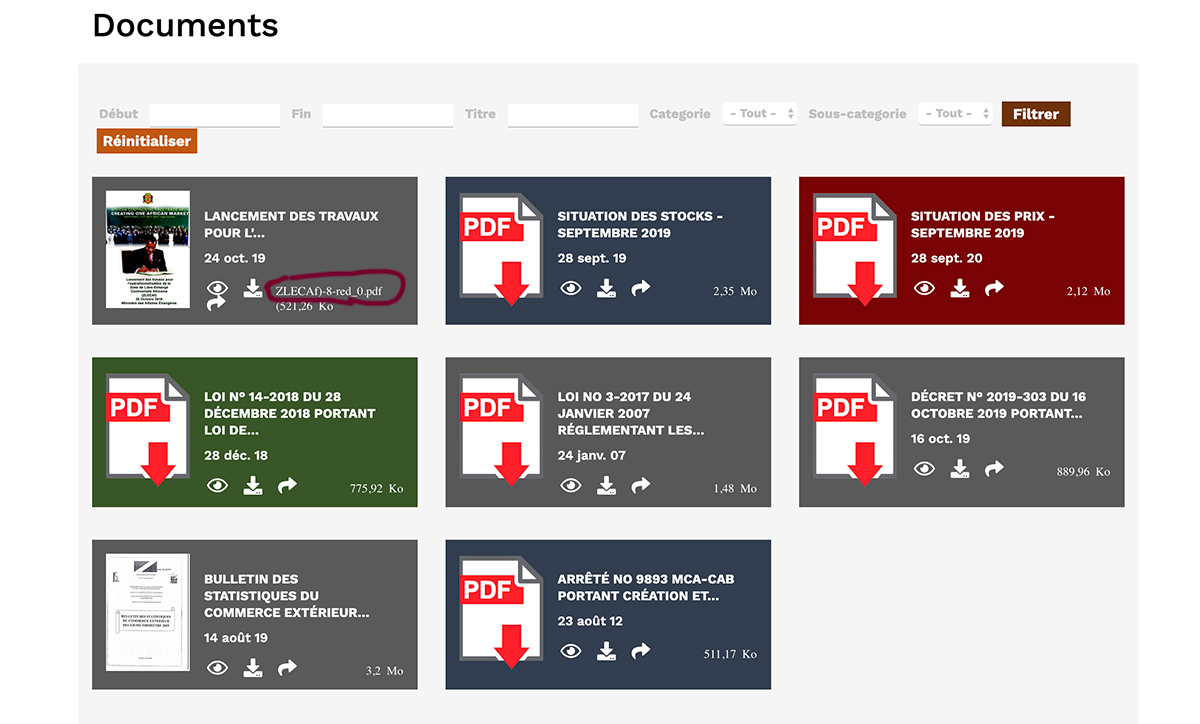Sub Title
Word from the Minister
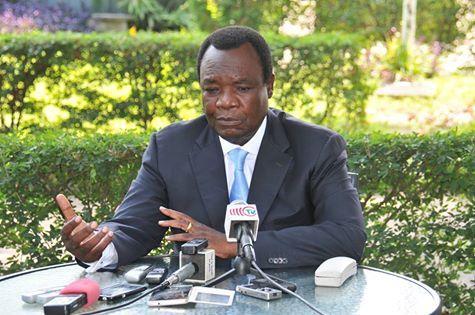
Main Image Name
Claude Alphonse NSILOU
Dear Colleagues, Distinguished invitees, Ladies and Gentlemen
Over the next ten years, Africa will experience upheavals that will reshape our economies, our societies.
The words of President MAHAMADOU ISSOUFOU of Niger, at the 12th African Union summit in Niamey in July 2019, reflect the importance of the path in which the Heads of State and Government have engaged Africa, when he pointed out that:
"The entry into force of the African Continental Free Trade Area is the most important event in the life of our continent since the creation of the OAU"
With the creation of the, AfCFTA - African Continental Free Trade Area, the African Heads of State and Government have actually just fulfilled the old dream of the founding fathers of the OAU who already at the time had declared, I quote:
"African unity is the only way that will ensure rebirth, dignity and progress for each country and for the whole continent"; end of quote.
Deeply attached to the values of Pan-Africanism borne by several generations of Pan-Africanists whose blend of ideologies gave birth to the OAU, President Denis SASSOU NGUESSO acted promptly to ensure that the Congo was among the first countries to sign and ratify the Agreement creating the African Continental Free Trade Area, the AfCFTA.
The Agreement was signed on March 21, 2018 in Kigali, Rwanda.
After its ratification on December 27, 2018 by the Congolese Parliament and its promulgation by the President of the Republic on February 07, 2019, the Republic of Congo deposited the instruments of ratification relating thereto with the African Union Commission on February 10, 2019, on the side-lines of the 32nd ordinary session of the Conference of Heads of State and Government of the African Union.
It entered into force on May 30, 2019 after the depositing of the 22 required instruments of ratification.
The African Union Commission recommended that signatory States develop a national strategy for its implementation.
In Congo, a national commission for monitoring and evaluation of the implementation of the Agreement was set up by Decree No. 2019-160 of June 26, 2019 of the Prime Minister, Head of Government, to define the content from the various stages to its operationalization.
The strategy will aim, among other things, at boosting the country's private sector production and export capacities and to intensify trade with
AfCFTA.
The Congo will have ten (10) years from July 1, 2020 to restructure its economy and adopt targeted measures to promote its production sector.
The AfCFTA shall not abolish the borders inherited from colonization, nor redraw the current borders, but will make it possible to get out of it through integration.
With the AfCFTA, the Heads of State shall build bridges between the Nations in order to create a united and prosperous humanity.
The AfCFTA essentially aims at the progressive elimination of tariff barriers to intra-African trade, particularly custom duties, to open the doors to a gigantic, single and integrated continental market of more than 1.2 billion people and an accumulated GDP of more than 2.500 billion dollars, in which will circulate goods, services, goods, capital and people eventually.
The AfCFTA proposes to eliminate, within ten years, custom duties on products representing 90% of tariff lines - Each line corresponds to a group of goods or products according to the international nomenclature developed by the World Customs Organization, WCO.
Aware of the major contemporary global challenges, as well as their appropriate solutions, at a time when large economic and customs unions are being built and solidified all over the world, the African continent could not remain out of this global movement.
In the face of these challenges and with the need to give a fresh impetus to its economic development, the continent is laying the groundwork for African renaissance.
This has to do with unleashing the immense potentials and mobilizing energies to make Africa, in the decades to come, a pole of world emergence.
On this subject, President Abdel Fattah al-Sissi of the Arab Republic of Egypt, President-in-Office of the African Union underscored that:
"The AfCFTA has come at the right time to give Africa the keystone for its development".
With 16% of intra-African trade transactions, while Asia is 50% and Europe at 70%, Africa is the continent with the lowest level of integration.
Africa is the poorest area in the world. Africa is at the bottom of the global economic competitiveness ranking.
The fragmentation of its markets curbs its efficiency and slows down its economic growth.
The AfCFTA puts in place a single continental market for goods and services accompanied by the free movement of capital.
Its drive to deepen economic integration and stimulate trade within Africa will mitigate the costs entailed by global shocks because, a larger and more efficient internal market acts as an insurance against the instabilities of international trade due to global volatility or contraction in global demand.
The AfCFTA will serve as a locomotive for the development of Africa. It will promote the industrialization of economies and the increase of regional trade. It will improve market efficiency and reduce the costs of doing business by allowing economies of scale.
It will facilitate trade and investment and create many jobs.
However, there are pitfalls from the beginning. They are numerous. Among other things, there is a great need for African countries to have access to energy and infrastructure.
For the AfCFTA to function, the movement of goods remains a major obstacle to African economic integration: sending a container from one country to another in Central Africa for example, is more expensive and takes more time than bringing a container from Asia.
There are also those countries that have a financial lead over others; which creates an inequality at the start.
Another inequality is to put on the same market countries of which 80% of their exports are composed of 70 product lines with others whose oil alone amounts to the same rate.
These are many pitfalls that could make you pessimistic. But all major economic zones had a difficult start because they faced the same pitfalls.
It was the will of men that made it possible to overcome them. This will is visible today among African leaders.
To date, 54 out of 55 countries have signed the agreement that creates the African Continental Free Trade Area while 27 have ratified it. Eritrea, the last country not to have signed, made a commitment at the Niamey summit to do so as soon as possible. Several instruments of ratification will soon be deposited by States that have not yet ratified it.
The Continental Free Trade Agreement has crossed the threshold of ratification. The 12th extraordinary summit of Niamey was the starting point.
Six operational instruments were launched at the 12th Niamey summit which was devoted essentially to the launch of the operational phase of the AfCFTA:
- The agreed AfCFTA rules of origin;
- The AfCFTA online negotiation portal protected by a password;
- The Pan-African payment and settlement system;
- The continental online mechanism for monitoring, notification and elimination of non-tariff barriers;
- The web and mobile AfCFTA application for businesses;
- The guidelines of the African Trade Observatory;
Negotiations on the rules of origin and the development of lists of tariff concessions by member States will continue until December 2019.
Phase 2 negotiations on investment, competition policy and intellectual property rights began shortly after the 12th extraordinary summit in Niamey.
Trade ministers have set a deadline of December 2020 for the conclusion of these negotiations.
This objective must be maintained.
At the Niamey summit, it was decided that the General Secretariat of the AfCFTA will be installed in Accra at GHANA.
GHANA has been selected from several countries for having fulfilled the required conditions.
Due to the continuation of negotiations on certain outstanding issues, the AfCFTA will be effective on July 1, 2020.
March 21 has been chosen as the date to commemorate Africa’s integration day.
As I said above, the Congo must today develop its national strategy to define the different stages until the operationalization of the AfCFTA over the next 10 years.
Today's meeting will therefore be devoted to launching the coordination of the national commission for monitoring and evaluation of the African continental free trade area, the AfCFTA.
The commission shall be under the authority of the Prime Minister, Head of Government. Amongst other things, it shall be responsible for:
- Carrying out, in concert with the administrations concerned, reflections and studies with a view to defining policies, strategies and measures capable of ensuring the promotion and growth of exports to the other countries signatory to the Agreement;
- Making recommendations to the Government on all issues relating to the implementation of the Agreement;
- Propose to the Government the draft legislative and regulatory texts which are essential for the implementation of the Agreement.
It shall be made up of a national coordination, a technical committee and a permanent secretariat.
Distinguished invitees, ladies and gentlemen,
On behalf of the Prime Minister, Head of Government, President of the commission, I declare open the coordinating the national commission for monitoring and evaluation of the African continental free trade area, the AfCFTA.
Thank you,
Alphonse Claude N’SILOU
Minister of State, Minister of Commerce, Supply and Consumption
